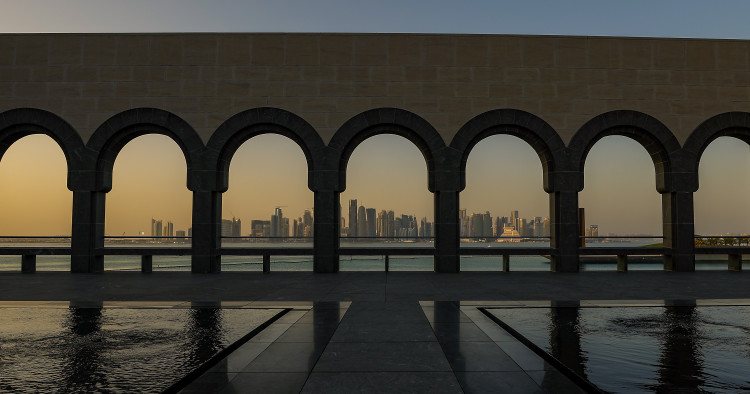The Middle East Dialogue, a panel of regional and extra-regional experts convened by the Middle East Institute’s (MEI) Conflict Resolution and Track II Dialogues Program and the Middle East Council on Global Affairs (ME Council), met in Doha, Qatar, on May 21-22, 2024, to explore regional political and economic dynamics. This meeting brought together policymakers, academics, and experts from across the Middle East and North Africa region and the United States, including the Gulf states, Egypt, Iran, Iraq, Jordan, Lebanon, Palestine, Yemen, and Turkey. This moderator’s report provides a summary of the issues and recommendations discussed.
Photo by Buda Mendes/Getty Images
About the Middle East Dialogue
The Middle East Dialogue is a process that began in 2012, following the Arab uprisings and the outbreak of war in Syria. Noting how the regional political landscape has been upended by the events of the last decade, the Dialogue was created to provide space for experts, officials (former and current), and emerging changemakers to convene and discuss priority areas related to security, political dynamics, and the changing regional order. Over the years, different Dialogue participants have convened to map out and better analyze the region, seeking solutions and recommendations on the evolving regional order and conflict de-escalation. The Middle East Dialogue now runs parallel to separate Dialogues that convene stakeholders with material investment and involvement in the region. This includes the Arab States Dialogue, Israel-Palestine Dialogue, and established dialogues between the United States, Russia, and Turkey, respectively. These concurrent Dialogues seek to inform each other, provide ongoing learning and knowledge-sharing, and feed into a holistic analytical understanding of the trajectory of the MENA region.
The Middle East Institute (MEI) is an independent, non-partisan, non-for-profit, educational organization. It does not engage in advocacy and its scholars’ opinions are their own. MEI welcomes financial donations, but retains sole editorial control over its work and its publications reflect only the authors’ views. For a listing of MEI donors, please click here.













